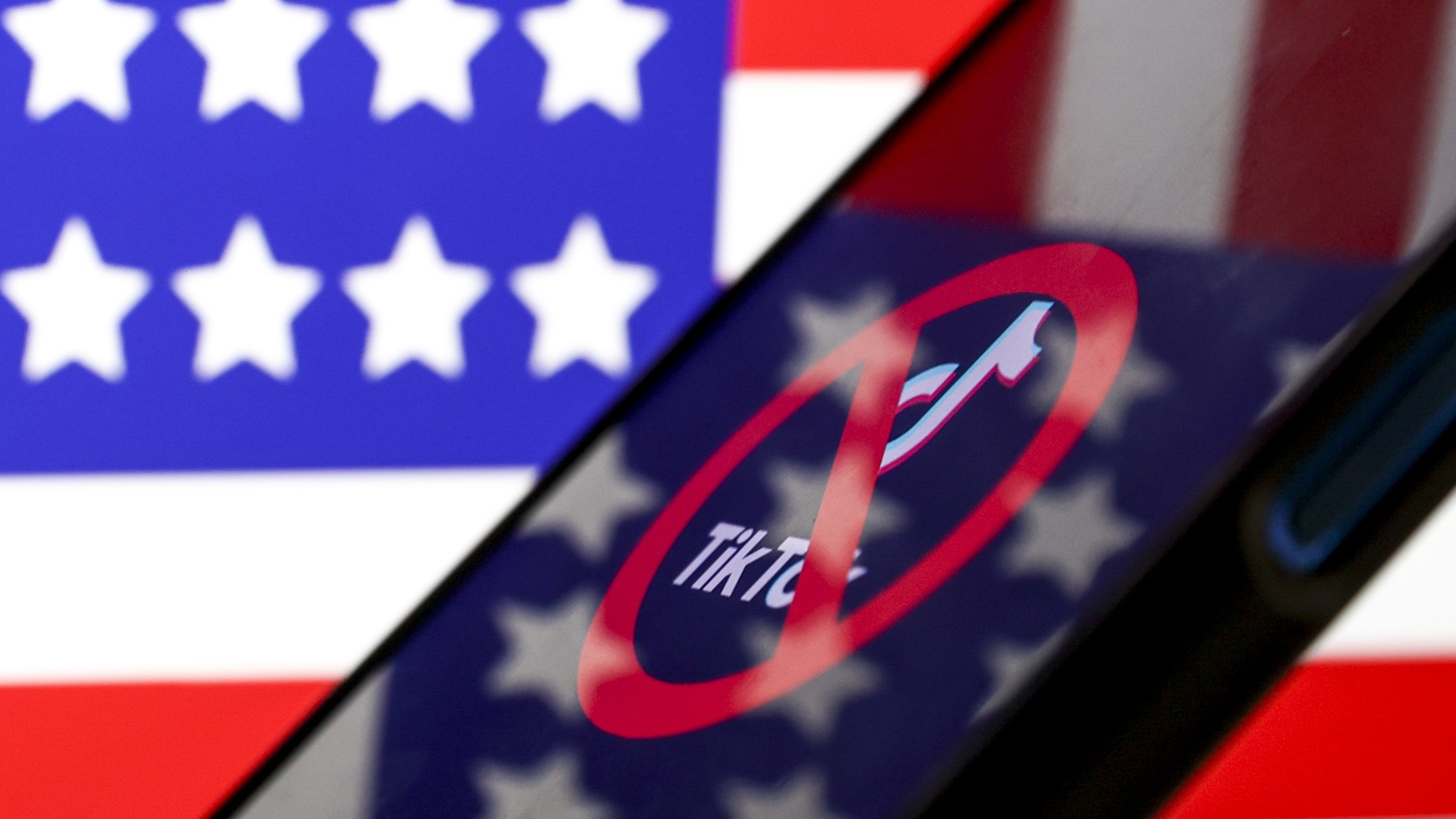TikTok replaces Facebook as political enemy No. 1
Lawmakers are renewing calls to get rid of the platform, accusing it of spreading propaganda


A free daily email with the biggest news stories of the day – and the best features from TheWeek.com
You are now subscribed
Your newsletter sign-up was successful
With its primary user base getting older and increased scrutiny from American lawmakers, it is clear that TikTok, initially known for spreading viral dance trends, has entered its political villain era. Calls for the platform to be banned have been mounting over the past few years and have taken on a renewed fervor as the platform tries to combat pushback from multiple angles.
TikTok recently came under fire for allegedly "promoting pro-Palestinian, anti-Israel content through its powerful feeds," The New York Times reported. The accusations stirred calls from Washington to ban the app, "arguing that Beijing may be influencing the content promoted through the platform’s algorithms." The accusations also led to a private meeting between more than a dozen Jewish influencers and celebrities and TikTok executives. The platform also faced backlash after Osama Bin Laden's "Letter to America" apparently went viral.
All of this controversy comes as TikTok increasingly becomes a news source, with the number of users who say they get it from the app nearly doubling since 2020, per a new poll by the Pew Research Center. TikTok still falls behind Facebook, which faced similar scrutiny for skewing towards far-right content, as the most popular social media app for news. That hasn't kept the younger, more left-leaning app from becoming the new center of the social media free speech debate.
The Week
Escape your echo chamber. Get the facts behind the news, plus analysis from multiple perspectives.

Sign up for The Week's Free Newsletters
From our morning news briefing to a weekly Good News Newsletter, get the best of The Week delivered directly to your inbox.
From our morning news briefing to a weekly Good News Newsletter, get the best of The Week delivered directly to your inbox.
TikTok is a serious threat, and the company could do more to protect users
For some critics, TikTok is not doing enough to quell the surge of inflammatory content on the platform. Actor Sacha Baron Cohen accused the platform of "creating the biggest antisemitic movement since the Nazis” by failing to use its tools to prevent a recent flood of antisemitic comments under videos posted by Jewish users, per the Times. During the private meeting, he criticized the platform for spreading violent images and disinformation. “Shame on you,” he said to Adam Presser, TikTok’s head of operations, before claiming that TikTok could “flip a switch” to combat antisemitism on its platform.
Between being accused of prioritizing pro-Palestine content and Obama Bin Laden's letter resurfacing, lawmakers from both sides of the political spectrum have seized the opportunity to reignite a push to ban the platform altogether. Rep. Josh Gottheimer (D-N.J.) accused TikTok of "pushing pro-terrorist propaganda to influence Americans" and called for it to be “banned or sold to an American company, in a post on X, formerly known as Twitter. Missouri Sen. Josh Hawley (R) similarly described the platform as “a geyser of terrorist propaganda — and the most effective surveillance tool for a foreign government ever invented,” in another X post.
Others criticized the platform's Chinese owners for purposefully allowing the spread of incendiary content. "Here in America, the application’s algorithm is exquisitely tuned to prioritize polarizing outrage and addictive, brain-numbing nonsense (at best) and dangerous propaganda (at worst)," Rep. Mike Gallagher (R-Wisc.) wrote In an op-ed for The Free Press. Gallagher said TikTok's parent company ByteDance and the Chinese Communist Party "have decided that China’s children get spinach, and America’s get digital fentanyl."
The moral outrage is opportunistic
Part of the increased attention on TikTok over other similar platforms comes down to it having "an ownership structure that has attracted negative attention," Phillip Bump noted in an analysis for The Washington Post. The fact that the app is a subsidiary of a company based in China "has made the company a target of U.S. government criticism and scrutiny from both sides of the aisle," Bump added. The backlash over the alleged amplifying of pro-Palestinian content, for instance, was identified by some critics as "downstream from Chinese national interests." TikTok's "ties to China also invite (at times opportunistic) overreaction," he observed, noting that another Post analysis found that Instagram "saw a similar divergence in interest between posts supportive of the Palestinian cause relative to Israel."
A free daily email with the biggest news stories of the day – and the best features from TheWeek.com
Garbage Day's Ryan Broderick called the platform "a political lightning rod," pointing out that the viral Osama Bin Laden story "was perfect for Democrats who want to explain away the very real generational divide happening on the left around support for Israel." It also works for "Republicans who are frightened that TikTok’s algorithm can turn red-blooded American men into Xi Jinping-worshipping catboys, or whatever," Broderick added. Intelligencer's John Herrman agreed that the videos of Gen Z reacting to the Bin Laden letter "slotted a little too neatly into wider conversations about how (particularly young) people are consuming news these days and about the political influence of foreign-owned TikTok."
Theara Coleman has worked as a staff writer at The Week since September 2022. She frequently writes about technology, education, literature and general news. She was previously a contributing writer and assistant editor at Honeysuckle Magazine, where she covered racial politics and cannabis industry news.
